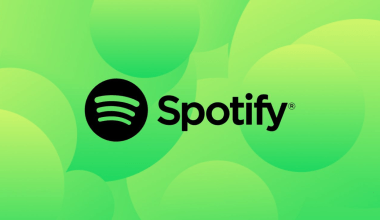If you’re an artist looking to get your music heard by the world, chances are you’ve come across the term “music distributor.” But what exactly does it mean? A music distributor is a service that helps artists get their music on platforms like Spotify, Apple Music, and Amazon Music. Essentially, they act as the middleman between you and the streaming services.
In the digital age, distributing your music is more important than ever. With millions of tracks being released every day, having a solid distribution strategy can make or break your music career. Keep reading as we dive deeper into how music distribution works, why it’s essential, and how to choose the best distributor for your needs.
How Does Music Distribution Work?
Music distribution might sound complicated, but it’s a straightforward process. Once you’ve created your music, a distributor helps you upload it to various streaming platforms and digital stores. These platforms make your music accessible to fans worldwide.
Distributors often offer extra services like copyright management, royalty collection, and analytics to help you understand your audience better. By working with a music distributor, you ensure your music is not only available but also marketed effectively to the right listeners.
Physical vs. Digital Distribution
In the past, music distribution primarily involved getting physical CDs and records into stores. Today, the focus is on digital distribution, which delivers your music directly to streaming platforms. This shift has made it easier and more affordable for independent artists to share their music with the world.
Why Do Independent Artists Need a Music Distributor?
Gone are the days when only major labels had access to distribution channels. With the rise of digital distributors, independent artists now have the power to control their music careers. Here’s why having a music distributor is essential:
- Global Reach: A distributor can get your music onto hundreds of platforms, making it available to listeners worldwide.
- Time-Saving: Instead of uploading your music to each platform individually, a distributor handles everything for you.
- Professional Tools: Many distributors offer insights and tools to help you track your streams, audience demographics, and earnings.
- Revenue Collection: They ensure you get paid for every stream, download, or sale.
Key Features to Look for in a Music Distributor
Not all music distributors are created equal. When choosing one, consider the following factors:
1. Platform Reach
Does the distributor work with major platforms like Spotify, Apple Music, and Deezer? The more platforms they cover, the better your chances of reaching a broad audience.
2. Pricing
Some distributors charge upfront fees, while others take a percentage of your earnings. Choose the model that aligns with your budget and goals.
3. Rights and Royalties
Make sure the distributor doesn’t take ownership of your music. Also, check their royalty policies to ensure you’re paid fairly and on time.
4. Support for Independent Artists
Look for distributors that cater specifically to indie artists. These platforms often provide extra resources like marketing tools and educational content.
Top Music Distributors to Consider in 2024
Here’s a list of some popular music distributors to help you get started:
- DistroKid: Known for its affordable pricing and unlimited uploads.
- TuneCore: Offers robust analytics and marketing tools.
- CD Baby: A reliable choice with a pay-per-release model.
- AWAL: Ideal for artists looking for personalized support.
- Ditto Music: Offers flexible pricing plans and excellent customer support.
How to Maximize Your Success with a Music Distributor
Getting your music onto streaming platforms is just the beginning. To truly succeed, you need to actively promote your music and engage with your audience. Here are some tips:
Platforms like Instagram, TikTok, and Twitter are powerful tools for connecting with fans. Share snippets of your songs, behind-the-scenes content, and updates about your releases.
2. Create Playlists
Curate playlists featuring your songs alongside tracks from similar artists. This can help you reach new listeners and build a loyal fan base.
3. Collaborate with Other Artists
Team up with other musicians for collaborations or cross-promotions. This can expand your audience and introduce your music to new listeners.
4. Use Analytics
Most music distributors provide detailed analytics about your streams and listeners. Use this data to identify your most popular tracks and understand where your fans are located.
Final Thoughts on Choosing the Right Music Distributor
A good music distributor can be the key to unlocking your full potential as an artist. Whether you’re just starting out or looking to take your career to the next level, investing in the right distributor is crucial.
Take the time to research your options and choose a distributor that aligns with your goals and budget. With the right tools and strategy, you’ll be well on your way to sharing your music with the world.
For further reading, explore these related articles:
For additional resources on music marketing and distribution, visit DMT Records Private Limited.






